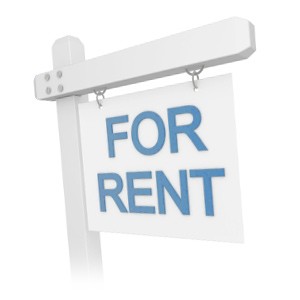
Any property owners / landlords in receipt of rental income from residential or commercial property are obliged to submit tax returns annually, whether the property is profit making or not. Irishtaxback.ie is very experienced in this area and can provide tax advice for landlords, and can help landlords with their tax returns.
The most common type of rental income is from letting a house, flat, apartment, office, building, land, a holiday home or Section 23 or other tax relief properties.
When calculating your rental expenses, you can deduct expenses so long as they are incurred wholly and exclusively for the purpose of the rental property. Rental expenses can significantly reduce one’s rental profit.
RENTAL EXPENDITURE (Residential & Commercial)
The following expenses may be deducted from the gross rents receivable:
- Repairs, insurance, maintenance, service charges, advertising for tenants, tax consultant fees and management of the property.
- Interest accruing on money borrowed to purchase, improve or replace the property. Please note that from 7 April 2009 this is subject to 75%.
- Goods provided and services rendered in connection with the letting of the property, i.e. anything that you purchase for the property can be offset against your rental income.
- Only expenses after the date of first letting are allowable, with the exception of the costs of negotiating the first letting – such as auctioneer’s, marketing, and solicitor’s cost.
- Capital allowances at a rate of 12.5% annually can be claimed on costs incurred on items that are not revenue in nature, i.e. that have a long term value, these costs will be written off over an 8 year period.
- PRTB – this expenditure can be offset against your rental income.
- NPPR – this is not an allowable deduction against your rental income.
- Losses can be carried forward and offset against future rental profit or increase your rental loss in the following year.
Irishtaxback.ie will be happy to assist you in reviewing your rental expenses in more detail.
FIRST TIME LANDLORD
If you are a First Time Landlord there are a few key steps that you need to be aware of:
- If the property was previously your Principal Private Residence and you are still receiving mortgage interest relief on the loan, you will need to inform the TRS section by completing Form TRS4 and your TRS will be cancelled.
- Register all residential properties with the Private Residential Tenancies Board ‘PRTB’. Failure to register with the PRTB not only prevents you from claiming your mortgage interest as a deductible expense and the PRTB also has its own fines for failing to register.
- Register the property with the Non Principal Private Residence ‘NPPR’ and pay the €200.00 fee. There is a penalty of €20.00 per month or part thereof for each month that the property is late being registered.
- Register as a landlord with Revenue by completing a Form TR1.
- Preferably set up a separate bank account for rental income & expenditure.
- Keep and record all receipts for expenditure incurred, which relates to the property.
- Submit your tax return annually. Late submission can also lead to interest and penalties.
TYPES OF RENTAL INCOME
The most common type of rental income is from letting a house, flat, apartment, office, building, land, a holiday home or Section 23 or other tax relief properties. Others are discussed in more detail below:
1. Foreign Rental Property Income
As Irish people have acquired properties across the globe, they have received rents from these properties. In some cases, property management companies may look after all issues relating to the property for their owners, including paying local tax in that country. In Ireland, you are still subject to declare this rental income on an annual basis. The rent received from this type of property is subject to income tax with deductions for costs incurred during the year. If you have paid local tax for this property in that country, then you can claim a double tax relief which will reduce your tax bill in Ireland.
2. Non Resident Landlords (NRL’s)
Landlords with Irish properties who are not resident in the state are known as Non Resident Landlords (NRL’s). Non-resident landlords are liable to Irish income tax on income from properties within Ireland and must file an Irish Tax Return. The Irish income tax year runs from 1 January to 31 December each year.
If a property owner resides outside the Republic of Ireland and they rent their principal private resident or any other investment property, they are required to do either of the following:
1. The tenant must deduct 20% of the rent due, then remit this amount to Revenue and also complete a Form R185 at the end of the year for the landlord; or
2. Appoint a Collection Agent – a person who is prepared to take on the responsibility of the property and will submit annual tax returns and accounts to Revenue on behalf of the landlord.
Irishtaxback.ie can not only elect to become your tax agent, but can also act as your collection agent, thereby ensuring that you are Irish tax compliant and remove all the hassle for the individual.
3. Rent a Room Scheme
The Rent a Room Scheme is a great way to earn money tax free, while at the same time, contributing to your mortgage repayments or allow you to live that little bit more comfortably! Under the Rent a Room Scheme, you can earn up to €10,000 a year tax free from renting out one or more rooms in your house. You also do not have to register the tenancy with the PRTB or the NPPR. While the rent is tax free, you do have to declare it through a Tax Return.
Irishtaxback.ie can prepare and submit all Rental Accounts and Tax Returns, with fees starting from €250.00. This is a Nationwide Service. Discounts do apply, so please contact Elma today for an accurate quote.
